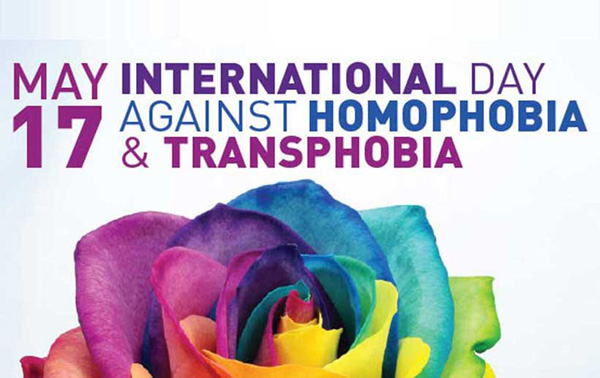On the occasion of this year’s International Day Against Homophobia and Transphobia (IDAHOT), on Saturday 17 May 2014, the Centre for Human Rights is pleased to host the photographic exhibition In Whom Can I Still Trust?. The exhibition aims to highlight the progress made, and challenges faced, in ensuring the protection of sexual minorities in South Africa.
The exhibition was officially opened a on Friday 16 May in a ceremony in the Faculty of Law, at the University of Pretoria. The opening included a message from the Johannesburg Holocaust and Genocide Centre, delivered by Ms Janine Cohen; a speech by Mr Richard Freedman, Director of the South African Holocaust and Genocide Foundation; and a welcome message from Prof Frans Viljoen, Director of the Centre for Human Rights. An inspiring and uplifting keynote address was delievered the famous South African human rights activist and social commentator Sisonke Msimang.
![]() Download the keynote address by Sisonke Msimang
Download the keynote address by Sisonke Msimang
The exhibition includes archive photographs, personal testimonies and video clips detailing the largely untold history of homosexual oppression in Nazi Germany. It relates the historical narrative to the prejudices that still exist today through additional panels prepared by the Gay and Lesbian Archives (GALA) and the screening of the South African version of the global “It Gets Better” advocacy campaign.
As the world commemorates IDAHOT, the Centre for Human Rights would like to highlight the ongoing struggle and repression of Africans on the basis of their sexual orientation, gender identity and their work related to these areas. Human development in Africa, and especially the right to health, have suffered significant set-backs due to recent legal and other moves to outlaw and criminalise same-sex relationships, often fuelled by the inflammatory utterances of political and religious leaders.
The Centre continues to urge African political leaders to create the necessary space for a full and informed discussion of consensual same-sex adult relationships, mindful of obligations under international human rights treaties and the human rights provisions enshrined in many African Constitutions. We renew our call to law enforcement agencies and the judiciary to respect and uphold the rights of all persons including those of same-sex orientation and persons who work with them.
The Centre commends the African Commission on Human and Peoples’ Rights for adopting, at its last session, the first resolution on sexual orientation and gender identities, directed at African governments, entitled ‘Resolution on the Protection against Violence and other Human Rights Violations against Persons on the Basis of their Real or Imputed Sexual Orientation or Gender Identity’.
The Centre for Human Rights invites the wide public to view this this timely exhibition, as a personal tribute to courage and resilience in the face of senseless and often brutal oppression. It gives pause for reflection on the lives of many who have suffered, and an opportunity to stand in solidarity with the daily struggle of those who live with institutionalised discrimination on the basis of their sexuality.
In Whom Can I Still Trust? will be on display at the Centre for Human Rights at the University of Pretoria from 16 May until 13 June 2014. It will feature an ancillary programme, including a film screening of ‘A love to Hide’ on Friday 30 May 2014 and a panel discussion to which all media are invited to attend. Further details will be provided.
As part of its Advanced Human Rights Courses (AHRC) programme, the Centre for Human Rights presents a one-week intensive course on the protection of sexual minorities in Africa, aimed at government officials, academics, legal practitioners and members of civil society (‘mainstream’ NGOs and others who may need information, awareness raising, and capacity on issues involved).
Related links


